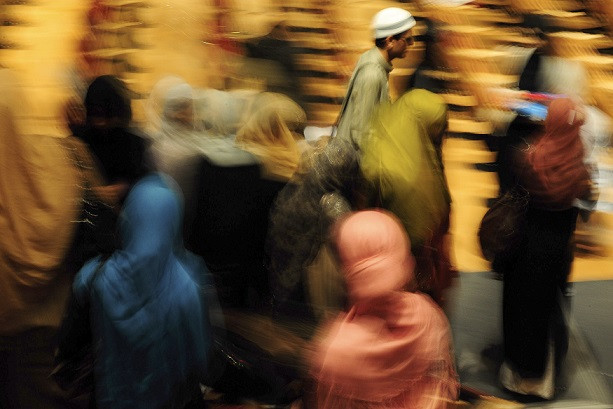Ofsted Accused of Islamophobia Over Birmingham 'Trojan Horse' Schools Report

A robust defence of Birmingham schools at the centre of allegations of Muslim extremism has been launched by teachers and the local council, with accusations of prejudice and Islamophobia lying at the heart of the crisis.
Giving evidence to a Commons committee on the affair, Lee Donaghy, the assistant principal of one of the schools criticised by Ofsted inspectors, flatly rejected any suggestion there had been Islamic extremism in the school.
He said many of the concerns raised had been because of "plain old Islamophobia" and ignorance of the Muslim way of life which, in his Park View school, with 99% Muslim pupils, showed lack of understanding of the local community.
He also rejected the recent Ofsted report into the school which, he stressed, had a good academic record and, when asked if he believed the inspectors' report had been prejudiced, he replied "yes".
Meanwhile, both the chief executive of Birmingham City Council, Mark Rogers, and the cabinet member for children and family services, Brigit Jones, also rejected suggestions there had been any extremism in the schools at the centre of the row.
Claims girls and boys had been segregated were denied or put down to selective reporting by inspectors and other issues, such as the broadcasting of the call to prayer, were explained by the fact the majority of pupils were Muslim. Christian acts of worship were also offered.
The hearing before the Commons home affairs committee was a result of the recent so-called Trojan Horse allegations of a plot by Muslim extremists to take over Birmingham schools.
All the witnesses insisted they had seen no evidence to that effect and neither had Ofsted. Even committee chair Keith Vaz said in the MP's year-long inquiries had not seen any such evidence either.
Rogers summed up what he believed had been exposed by the affair which, he suggested, was a confusion between extremism and religious conservatism which was an issue that should be addressed across all non-faith schools.
Local communities in Birmingham had become upset by a conflation of the two, he said.
The affair had raised questions over what the role of faith should be in non-denominational schools and the "vexed question" of exactly what were British values, he said.
For example, he said he had previously worked in Wolverhampton where the tolling of the mass bell in a Catholic school had upset local residents yet only Islam appeared to be drawing attention.
He added that he believed the Trojan Horse letter was not an authentic message between one plotter and another but more a case of the setting out of a number of issues someone was worried about.
What was clear from the evidence given to the committee was that local teachers and politicians involved in the affected schools believe no evidence found to suggest any extremism but that fears over Islamic culture lie at the root of the problem.
© Copyright IBTimes 2025. All rights reserved.






















